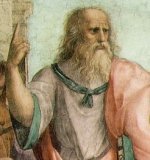
Worksheets and No Prep Teaching Resources
Reading Comprehension Worksheets
Ancient Greece

Ancient Greece
 Worksheets and No Prep Teaching Resources Reading Comprehension Worksheets Ancient Greece |
 Ancient Greece |
| edHelper's suggested reading level: | grades 7 to 9 | |
| Flesch-Kincaid grade level: | 7.73 |
|
Plato
By Vickie Chao |

|
 1 When it comes to philosophers, ancient Greece had many big names. Among them, Plato was perhaps the most influential.
1 When it comes to philosophers, ancient Greece had many big names. Among them, Plato was perhaps the most influential. |
Create Weekly Reading Books
Prepare for an entire week at once! |
| Leave your feedback on Plato (use this link if you found an error in the story) |
 |
Ancient Greece
|
 |
Social Studies
|